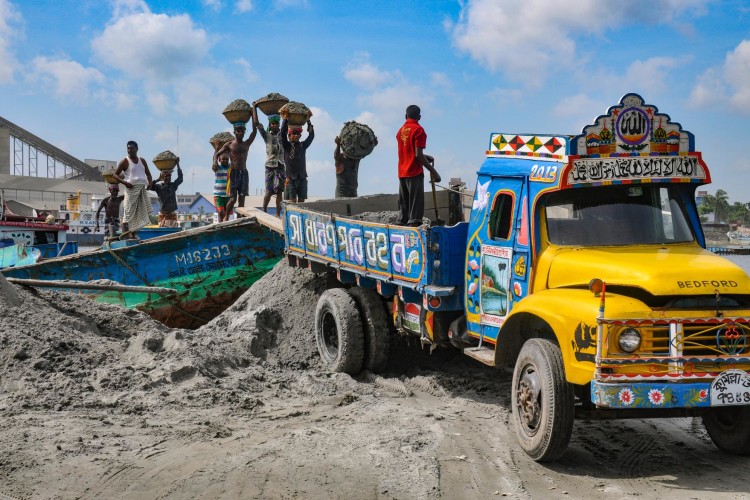Sand and gravel are being extracted faster than they can be replaced, says a new report published in the journal Nature. The group of scientists from CU Boulder, the University of Illinois, the University of Hull and Arizona State University call for a global agenda for sand.
Chris Hackney, research fellow from the University of Hull’s Energy & Environment Institute, said: “The fact that sand is such a fundamental component of modern society, and yet we have no clear idea of how much sand we remove from our rivers every year, or even how much sand is naturally available, makes ensuring this industry is sustainable very, very difficult.
“It’s time that sand was given the same focus on the world stage as other global commodities such as oil, gas and precious metals.”
The researchers said that there is a need to understand the occurrence of sustainable sources and reduce current extraction rates and sand needs, by recycling concrete and developing alternative to sand such as crushed rocks or plastic waste materials. This will rely on a knowledge of the location and extent of sand mining, as well as the natural variations in sand flux in the world’s rivers. A global sand monitoring program is thus imperative.

A lack of oversight and monitoring is leading to unsustainable exploitation, planning and trade. Removal of sand from rivers and beaches has far-reaching impacts on ecology, infrastructure, national economies and the livelihoods of the three billion people who live along the world’s river corridors, said the scientists.
Illegal sand mining has been documented in 70 countries across the globe, and battles over sand have reportedly killed hundreds in recent years, including local citizens, police officers and government officials.
Mette Bendixen, a researcher at CU Boulder’s Institute of Arctic & Alpine Research (Instaar), said: “From 2000-2100 it is projected there will be a 300% increase in sand demand and 400% increase in prices. We urgently require a monitoring programme to address the current data and knowledge gap, and thus fully assess the magnitude of sand scarcity. It is up to the scientific community, governments and policy makers to take the steps needed to make this happen.”
Got a story? Email news@theconstructionindex.co.uk



